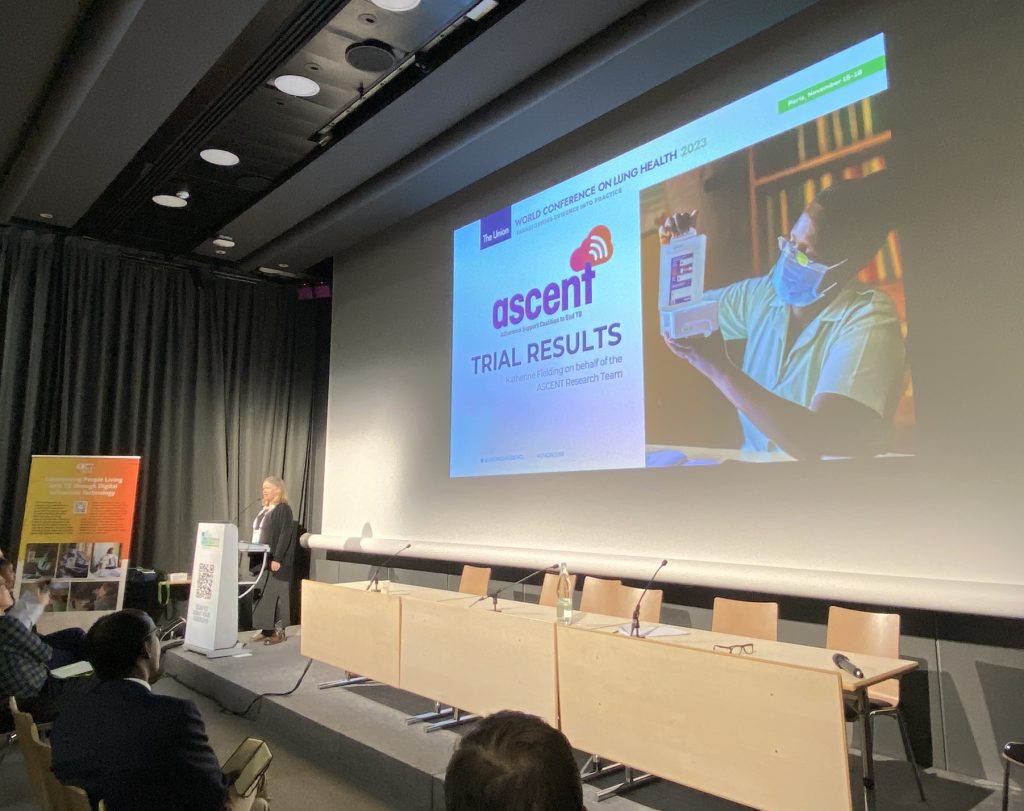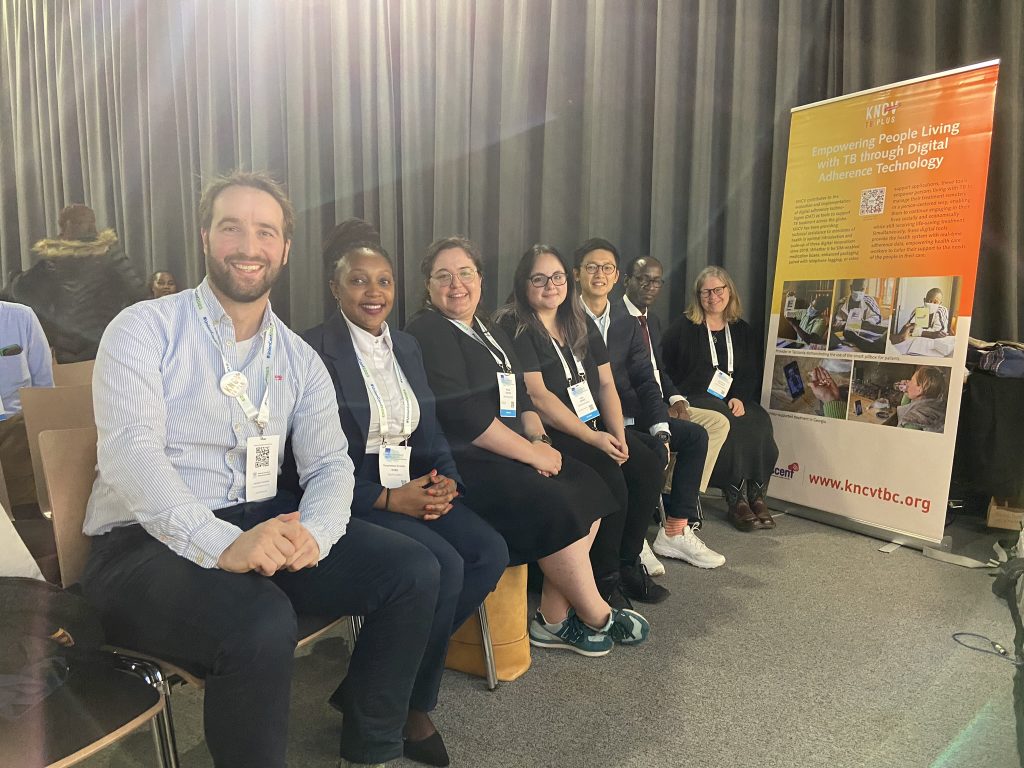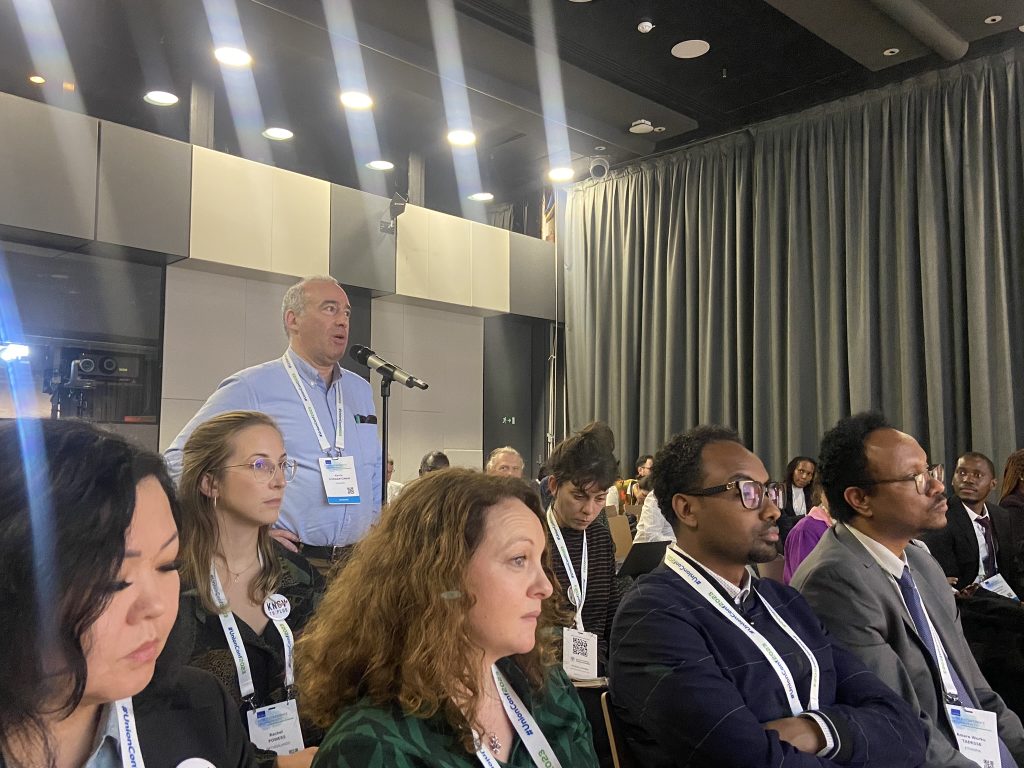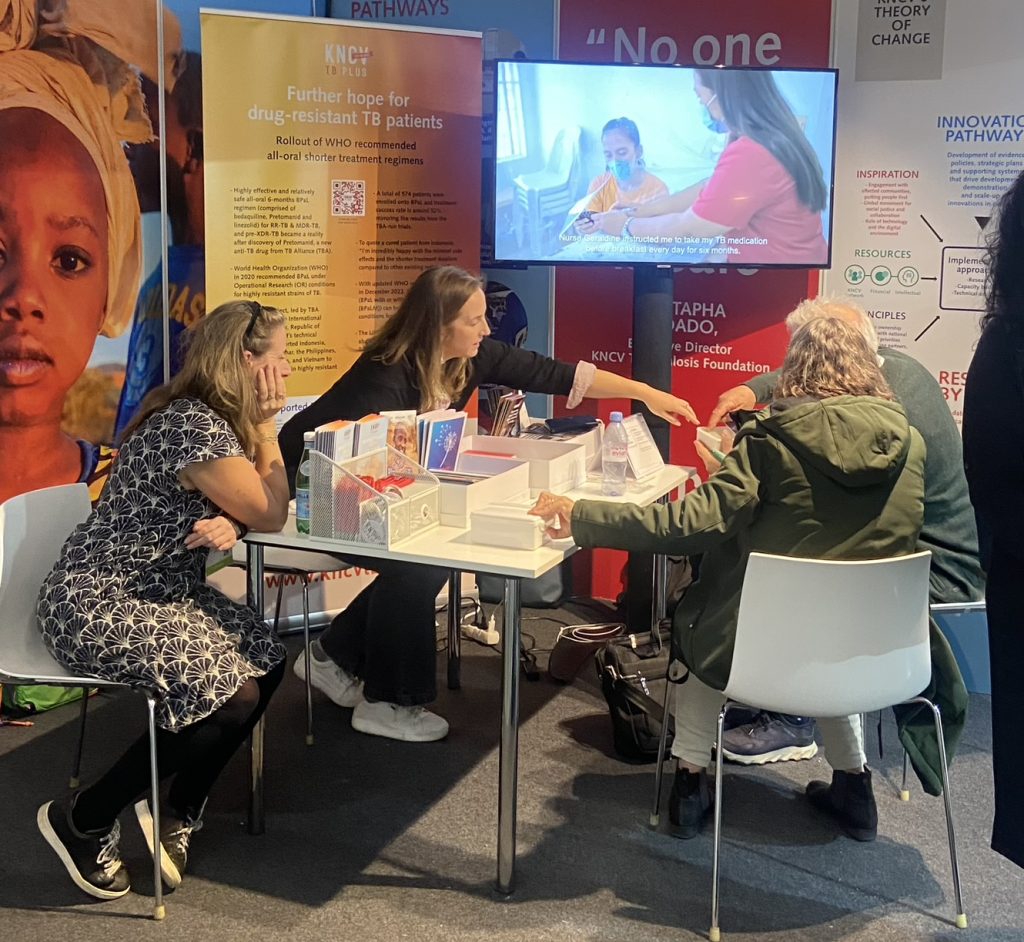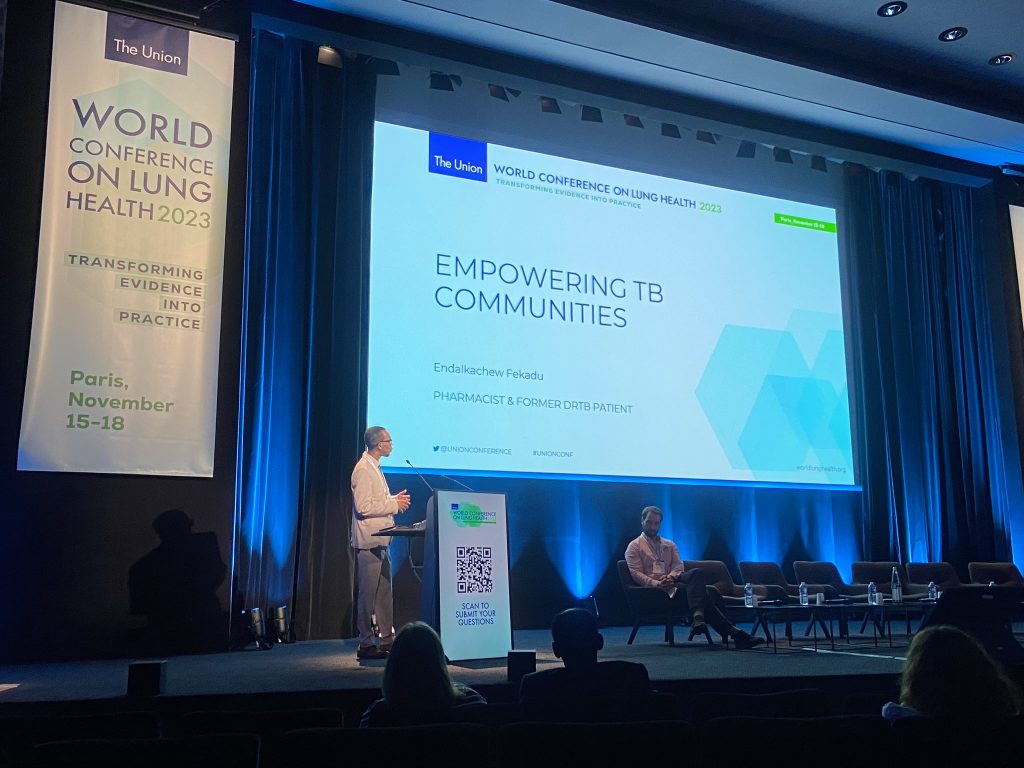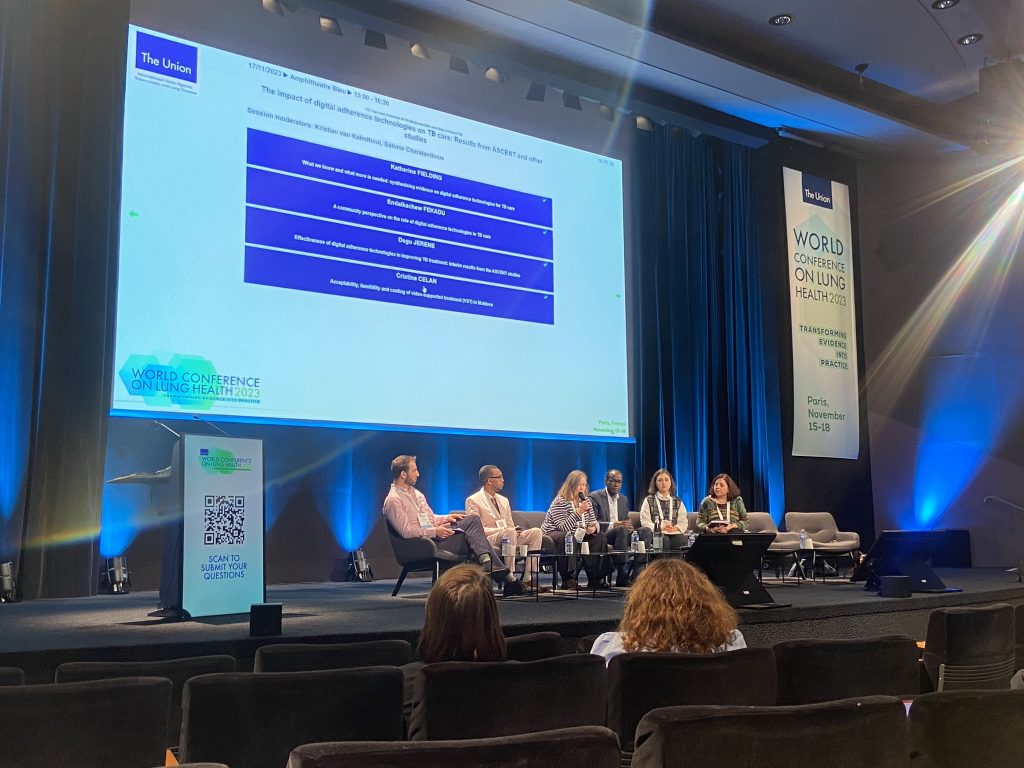From the 15 to the 18 of November this year, the ASCENT Project team joined one of the greatest knowledge sharing platforms on lung health there is: The Union World Conference on Lung Health. The theme for this year revolved around Transforming evidence into practice, and our ASCENT team couldn’t be prouder of how the work carried out during the project aligned with this theme.
The fight against tuberculosis (TB) has taken a significant leap forward with the integration of cutting-edge Digital Adherence Technologies (DAT). The latest DAT breakthroughs unveiled at the Union Conference have showcased the potential of these tools in supporting individuals living with TB to successfully complete their treatment courses, not as a single intervention but as a part of a pool of options for people undergoing TB treatment.
The Union Conference as a platform for innovation and connection:
This year, the conference played host to groundbreaking studies on DAT designed to support TB treatment adherence. The dissemination of these results provided a unique opportunity for diverse stakeholders to engage in discussions, share insights, and collectively think of strategies for the future of TB care.
Presented by a dedicated group of researchers, results of ASCENT trial took part at the Satellite Session “Digital adherence technologies in TB care” and the Symposium “The impact of digital adherence technologies on TB care” building on a narrative of innovation, empowerment, person-centeredness and the pursuit of a future where TB treatment is not just adhered to but adapted to individual needs and preferences.
Bringing along a couple of Smart Pill Boxes to the venue allowed different audiences to dive deeper into how this DAT works, and helped the team identify what different type of stakeholders consider as potential barriers of use or challenges to procuring Smart Pill Box use in their contexts. The Conference served as a nexus for stakeholders invested in ending TB:
- Researchers shared their findings with fellow scientists.
- Practitioners exchanged best practices.
- Governmental officers explored policy implications.
- Civil Society Organizations (CSO) and advocacy groups discussed the potential for community engagement.
- Digital health promoters found a platform to showcase the transformative power of technology in equitable TB care.
Discussions held during the Conference and from the questions that emerged during the sessions resulted in the following highlights from ASCENT at the Union:
- To date, ASCENT has been the largest pragmatic implementation research project that evaluates the effectiveness of DATs for the reduction of unfavorable TB treatment outcomes. This means that this trial was carried out in settings close to real-life contexts, with the complexities that this entails.
- ASCENT found high user-DAT engagement rates across countries, especially for the Smart Pill Box. User-DAT engagement was used as a proxy for adherence, which could be interpreted as a strong interest from people in using their DAT as a support tool throughout their TB treatment course.
- As obvious as it might seem, different population groups have different approaches to their DATs, different levels of (digital) literacy required, and different Standard of Care (SoC) available in their contexts. This contributed to making this project a complex thread, however a commonality across study countries lies on the improvement of the user-provider relationship identified through the qualitative study conducted in this project.
Future implications and collaboration:
The unveiling of these results marks a crucial turning point in the approach to TB treatment, and in the case of ASCENT, the potential future of DATs. As stakeholders collaborate to integrate digital adherence technologies into mainstream healthcare and health systems’ daily workflow, the potential for scalable and sustainable solutions becomes evident.
The Union Conference has not only staged groundbreaking research findings but has also ignited a collaborative spirit among diverse stakeholders committed to advancing TB care. Finally, a key take-home message that leads the steps to follow is:
There is room to optimize the implementation of digital support approaches in synergy with other comprehensive person-centered strategies for people on TB treatment.
Check out more about the ASCENT data story here.
